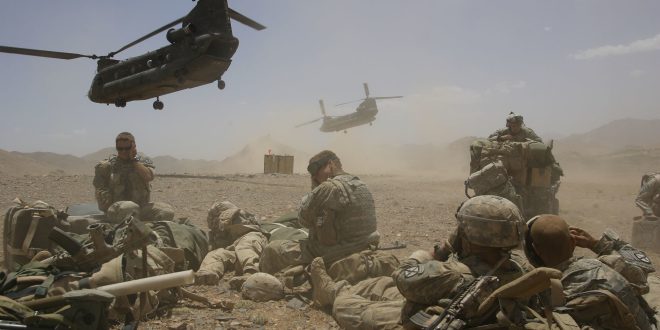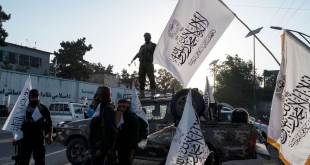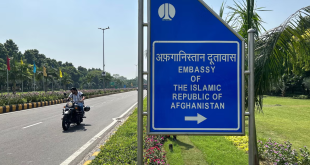AT News
KABUL – In a stunning revelation, the Peace Research Institute Oslo has reported that the United States made a complete U-turn in its basic stance towards Afghanistan before its full withdrawal. The shift in position came as the US moved away from its long-standing commitment to preserving the democratic state and political order it had supported since 2001 in Afghanistan. Instead, the US began prioritizing its own “military disengagement” from the war-torn nation.
Peace Research Institute in its report said that the US under the administration of President Trump changed its stance towards Afghanistan in 2018 and pursued a military withdrawal. This decision carried a significant risk, as it increased the likelihood of the Taliban taking control of the Afghan government. Strikingly, the US and the Taliban found themselves in alignment regarding the withdrawal of international military forces.
The peace talks took an unexpected turn as the US yielded to the Taliban’s demands to exclude the legitimate Afghan authorities from negotiations. The Taliban insisted that the talks should involve only the US and themselves, effectively sidelining the Afghan government. As the talks progressed, several compromises were made. The US abandoned its initial insistence on a complete ceasefire and made unpopular commitments on behalf of the Afghan government. This created complications and delays, leading to a loss of international military leverage and severely undermining the Afghan government’s position.
The pivotal moment in this process occurred three years before the dramatic fall of Kabul in August 2021. The US decided that its primary objective was to withdraw militarily from Afghanistan, rather than continuing to support the fragile Afghan government in its fight against the Taliban.
Direct talks between the US and the Taliban further solidified the path to the Taliban’s takeover. These negotiations excluded the legitimate Afghan authorities who heavily relied on international support for their survival. The resulting peace treaty was vague, lacking clear commitments on a ceasefire, monitoring mechanisms, and consequences for violations. Additionally, the US made commitments on behalf of the reluctant Afghan government, including a large-scale exchange of prisoners.
This US-Taliban agreement ultimately paved the way for the Taliban’s ascendancy, an outcome that seemed highly probable regardless of whether viewed in 2018 or 2020, when the talks began and concluded, respectively.
The ethical dilemma at the heart of this issue lies in the distinction between the US’s right to decide on withdrawal and negotiate the terms for departure versus actively undermining the Afghan government’s negotiation process for a possible intra-Afghan peace settlement.
As this astonishing shift in the US’s fundamental position towards Afghanistan comes to light, the world remains in awe of the consequences and implications that continue to unfold in the region.
 Afghanistan Times
Afghanistan Times




